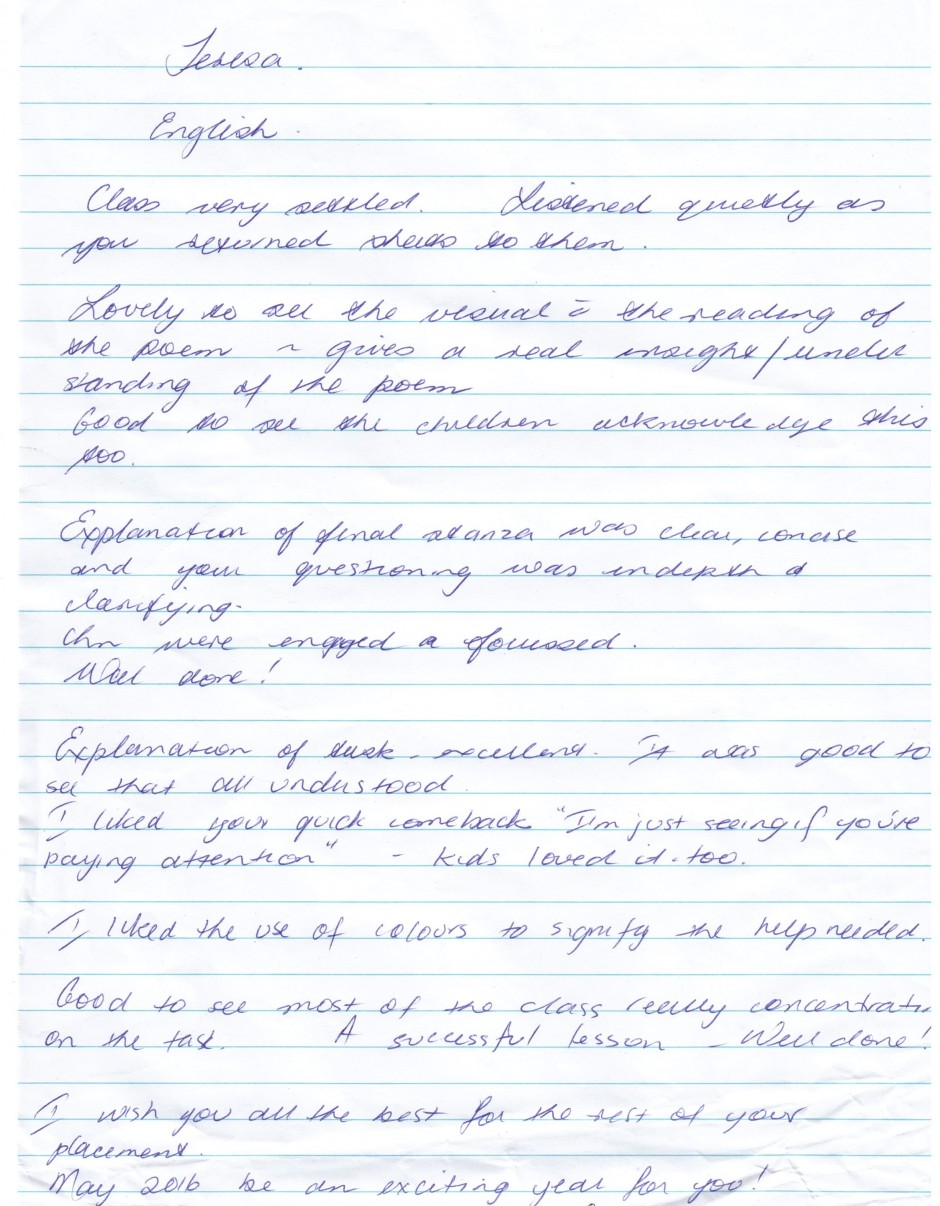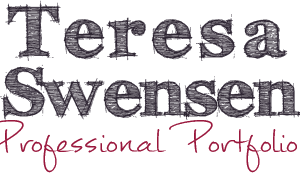This gallery of photographs provides evidence towards focus area 1.1, focus area 1.2, and focus area 2.1. The use of concrete materials in the classroom is supported by Piaget’s learning theories but using materials also increases students’ engagement in the learning process. The students in these lessons were aged between 8 and 10 years old which according to Piaget’s theory of cognitive development would place these students in the concrete operations stage. A main characteristic of this stage is that students are unable to think in abstractions so one of their learning needs is that they need to experiment with materials (Duchesne, McMaugh, Bochner & Krause, 2013). More recent research does suggest some students can think abstractly, however the use of concrete materials remains engaging for students and provides them opportunity to apply concepts to real life situations (Siemon, Beswick, Brady, Clark, Faragher, & Warren, 2011) Continue reading Using Concrete Materials in Maths
Tag: Focus Area 2.1
2.1 Content and teaching strategies of the teaching area
Graduate teacher: Demonstrate knowledge and understanding of the concepts, substance and structure of the content and teaching strategies of the teaching area.
Proficient teacher: Apply knowledge of the content and teaching strategies of the teaching area to develop engaging teaching activities.
Meeting a specific learning need
During a diagnostic assessment on dictionary skills I identified that only one student, in my class of 22, could locate a word in the dictionary. I understood that there are a range of necessary skills required for this task and sourced a learning activity to assist students to be successful in this task. These tasks included being familiar with the alphabetical order of letters, guide words in dictionaries and also understanding how to read the information in the dictionary meaning. The dictionary skills booklet I sourced provided students with a step by step guide. Initially the class worked together on a PowerPoint slide with me on alphabetical order and then on using guide words in the dictionary. As they gained confidence with their understanding they were provided opportunity to continue to practice using a self-paced work book with the goal of being able to efficiently use a dictionary. This teaching and learning strategy showed success with some students being able to locate words quickly and efficiently in a dictionary and most students being able to find words with some time provided. Continue reading Meeting a specific learning need
Student engagement in History
 The history unit delivered to the year 3 class was sourced from Education Queensland’s C2C. One of the initial lessons of unit 2 required students to create a time line. In the previous unit I noted that some students had difficulty creating a personal timeline. They were able to identify significant events in their life, but some students had difficulty representing these events chronologically on the prepared timeline that was to be pasted into their books. Research indicates that there are a range of factors that can initiate situational interest resulting in greater engagement and learning (Duchesne, McMaugh, Bochner & Krause, 2013). Based on this, I adapted the lesson in unit 2 to provide students the opportunity to create a visual display, providing them with some choice as to the presentation of the timeline but with the requirement of the photographs needed to be in chronological order. Taking away the element of writing and thinking of their own events, students were provided with pre-labeled photographs. In this task, all students created a visually pleasing timeline that was chronologically correct.
The history unit delivered to the year 3 class was sourced from Education Queensland’s C2C. One of the initial lessons of unit 2 required students to create a time line. In the previous unit I noted that some students had difficulty creating a personal timeline. They were able to identify significant events in their life, but some students had difficulty representing these events chronologically on the prepared timeline that was to be pasted into their books. Research indicates that there are a range of factors that can initiate situational interest resulting in greater engagement and learning (Duchesne, McMaugh, Bochner & Krause, 2013). Based on this, I adapted the lesson in unit 2 to provide students the opportunity to create a visual display, providing them with some choice as to the presentation of the timeline but with the requirement of the photographs needed to be in chronological order. Taking away the element of writing and thinking of their own events, students were provided with pre-labeled photographs. In this task, all students created a visually pleasing timeline that was chronologically correct.
During the task, it was slightly differentiated. Whilst the majority of students worked independently, I worked with a small group of students to provide assistance to read the labels. With this assistance they were able to identify the date and determine the order that the photographs needed to be placed.
This provides evidence towards focus area 1.2, focus area 1.5, focus area 2.1, and focus area 3.2.
References
Duchesne, S., McMaugh, A., Bochner, S., & Krause, K. (2013) Educational Philosophy For Learning and Teaching, 4thedn, South Melbourne, Cengage Learning Australia
Thank you cards from students
These are a sample of cards that were presented to me from my year 5/6 students. By thanking me in their farewell cards for teaching them about Paterson demonstrates they were engaged and enjoyed the unit of work. This is evidence towards achievement of focus area 2.1. Continue reading Thank you cards from students
Observation from University Liaison
This written observation sheet demonstrates achievement for Focus Area 2.1.
The lesson began with a YouTube clip of The Man From Snowy River which the students were viewing in preparation of the work they were continuing with from the day before. The students had been well placed in groups with other students that they worked well with, and the lesson was structured to ensure students understood their task and had sufficient support from peers and myself. This written observation record demonstrates that my lesson was engaging for the students resulting in them being focused on their learning activities.
Banjo Paterson Literature Study
This unit plan demonstrates my achievement towards Focus area 2.1
As part of the English Curriculum 2 topic for my Bachelor of Education Degree at Flinders University I developed a unit plan for a six week literature unit for English. The unit that I planned demonstrates that I can develop a scaffolded unit of study. The unit plan was designed to engage students through a range of learning activities including group work, paired work, written tasks, oral language lessons and incorporating technology into the lessons within the unit plan. This caters to a wide variety of students’ interests and learning needs.
[embeddoc url=”https://teresaswensen.edublogs.org/files/2015/07/Banjo-Paterson-Unit-Plan-1umguwc.pdf” viewer=”google”]
Primary School Teachers Primed to Teach Science
This article provides evidence towards focus area 6.4 demonstrating that I have gained professional knowledge on teaching the science curriculum and focus area 2.1. I wrote this article for an assignment in my Science and Design Technologies topic at Flinders University in 2014 in favour of primary school teachers having the pedagogical skills and knowledge to teach science by drawing on resources such as primary connections, colleagues and community members. Continue reading Primary School Teachers Primed to Teach Science
